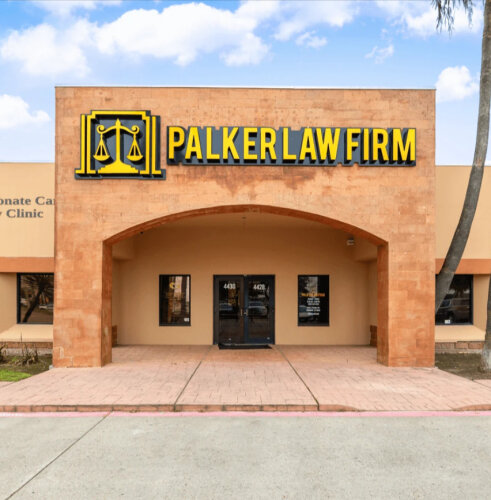Best Construction Accident Lawyers in Edinburg
Share your needs with us, get contacted by law firms.
Free. Takes 2 min.
List of the best lawyers in Edinburg, United States
About Construction Accident Law in Edinburg, United States
Construction accident law in Edinburg, Texas, United States covers the legal rules and remedies available when someone is injured on a construction site. Injuries may arise from falls, scaffolding collapses, struck-by incidents, electrocutions, heavy equipment accidents, and exposure to hazardous materials. Liability can involve employers, general contractors, subcontractors, property owners, equipment manufacturers, and suppliers. Two main paths of recovery are common - workers' compensation benefits for employees and third-party personal injury claims for situations where someone other than the employer is at fault. Understanding local rules, reporting requirements, and time limits is important to protect rights and pursue compensation.
Why You May Need a Lawyer
A lawyer experienced in construction accidents can help in many situations where the legal and factual issues are complex or the stakes are high. Common reasons to consult an attorney include:
- Serious or catastrophic injuries that result in long-term disability, extensive medical care, or significant lost wages.
- Denied or delayed workers' compensation benefits, disputes over medical treatment, or disputes about temporary or permanent disability ratings.
- When a third party - for example a subcontractor, equipment manufacturer, property owner, or contractor - may be legally responsible in addition to or instead of the employer.
- Multiple potentially responsible parties, making investigation and allocation of fault complicated.
- Questions about whether your employer carries workers' compensation insurance. In Texas some employers choose not to provide workers' compensation coverage, which affects your legal options.
- Insurance companies offering quick low-value settlements before all medical treatment and long-term needs are known.
- Fatal accidents where surviving family members may pursue wrongful death and survival claims.
- Issues involving federal or state safety violations, OSHA investigations, or governmental immunity questions if a public entity is involved.
Local Laws Overview
Edinburg is in Texas, so state law and federal safety law are the main legal frameworks. Key local and state law points to know include:
- Workers' Compensation System - Texas employers may choose to subscribe to workers' compensation insurance. If your employer participates in the workers' compensation system, it is generally the exclusive remedy against the employer for workplace injuries, meaning you usually cannot sue your employer in court for negligence. If your employer does not carry workers' compensation, you may be able to sue the employer directly for negligence.
- Notice Requirements - Texas law requires injured employees to report work-related injuries to their employer promptly. For most injuries, reporting within 30 days helps preserve benefits. Occupational diseases and repetitive trauma cases follow different reporting rules.
- Statute of Limitations - For personal injury and wrongful death claims in Texas, the deadline is generally two years from the date of injury or death. Different rules may apply for governmental defendants or specific administrative claims, so prompt action is critical.
- Comparative Fault Rule - Texas follows a modified comparative fault rule with a 51 percent bar. If you are more than 50 percent at fault for your injuries, you cannot recover. If you are 50 percent or less at fault, your recovery is reduced in proportion to your percentage of fault.
- OSHA and Safety Law - Federal Occupational Safety and Health Administration rules apply on most private construction sites. Serious injuries and fatalities must be reported to OSHA within specific timeframes. OSHA standards can be important evidence of negligence when violations contribute to an accident.
- Third-Party Claims - Even if you receive workers' compensation benefits, you may still bring a third-party claim against negligent contractors, equipment manufacturers, or other non-employer parties whose conduct caused the injury.
- Wrongful Death and Survival Actions - Texas law allows family members to pursue wrongful death claims and executors to bring survival actions on behalf of a deceased worker. Damages, remedies, and eligible plaintiffs are governed by the Texas Civil Practice and Remedies Code.
- Local Building and Permit Rules - City and county building codes, permit procedures, and inspection records in Edinburg and Hidalgo County can be relevant to proving defective work, improper permits, or ignored safety measures.
Frequently Asked Questions
What should I do immediately after a construction accident?
Get medical attention right away, even if injuries seem minor. Report the accident to your supervisor or employer as soon as possible and request an incident report. Preserve evidence by taking photos, keeping damaged clothing or equipment, and recording witness names and contact information. Avoid giving detailed recorded statements to insurance adjusters without advice from an attorney.
Can I sue my employer if I was hurt on an Edinburg construction site?
It depends. If your employer carries workers' compensation insurance and your injury is a covered workplace injury, workers' compensation is typically the exclusive remedy against the employer. If your employer does not carry workers' compensation, you may have the right to sue the employer for negligence. Always check the employer's coverage status and consult a lawyer to determine your options.
What is the deadline to file a lawsuit after a construction injury in Texas?
For most personal injury and wrongful death claims, the statute of limitations in Texas is two years from the date of injury or death. Administrative claims and claims against government entities may have shorter deadlines or special notice requirements. Missing the deadline can bar recovery, so contact an attorney promptly.
Can I get workers' compensation and also sue a third party?
Yes. Receiving workers' compensation does not prevent you from pursuing a third-party claim against someone other than your employer whose negligence caused the accident. Common third parties include equipment manufacturers, subcontractors, property owners, and other contractors.
What types of damages can I recover after a construction accident?
Potential recoverable damages include medical expenses, past and future lost wages, loss of earning capacity, pain and suffering, mental anguish, disfigurement, and in wrongful death cases, funeral expenses and loss of financial support. The types and amounts of recoverable damages depend on whether you are pursuing workers' compensation benefits, a third-party personal injury claim, or a wrongful death action.
What if my workers' compensation claim is denied?
If your claim is denied, you can appeal the decision through the Texas Division of Workers' Compensation dispute resolution system or pursue other legal options if your employer did not provide coverage. Denials often relate to disputes over whether the injury arose out of employment, medical causation, or timely reporting. An experienced lawyer can help gather evidence, obtain independent medical opinions, and navigate the appeals process.
How does fault affect my recovery?
Texas follows a modified comparative fault rule with a 51 percent bar. If you are found to be more than 50 percent at fault for the accident, you cannot recover. If you are 50 percent or less at fault, your damages are reduced in proportion to your share of fault. Proper investigation is important to limit or rebut allegations of your fault.
Will I have to go to court?
Many construction accident cases settle before trial through negotiation or alternative dispute resolution. However, if negotiations fail, your case may proceed to court. A lawyer will evaluate whether settlement offers are fair based on your damages and will prepare your case for trial if needed.
How long will it take to resolve my case?
Case duration varies widely. Workers' compensation claims can resolve in months if medical treatment stabilizes and benefits are agreed. Third-party personal injury claims, especially those involving serious injuries or disputed liability, can take a year or more to resolve. Cases that go to trial or involve appeals will take longer. Your attorney can provide a timeline estimate based on your case specifics.
How do I choose the right lawyer for a construction accident case?
Look for a lawyer or law firm with specific experience handling construction injury cases in Texas, knowledge of workers' compensation and third-party claims, and a track record of successful outcomes. Ask about contingency fees, how they investigate accidents, whether they work with expert witnesses, and how they communicate with clients. A good attorney should explain your options clearly and give a realistic assessment of likely outcomes.
Additional Resources
Below are types of organizations and government bodies that can provide information or assistance. Contacting the appropriate agencies can help you with reports, claims, and safety information.
- Texas Department of Insurance - Division of Workers' Compensation - handles workers' compensation administration, claims, and dispute resolution in Texas.
- Occupational Safety and Health Administration - enforces federal workplace safety standards and investigates serious construction accidents.
- Hidalgo County Clerk and local courts - for filing civil claims, accessing court rules, and locating local dockets.
- Edinburg City Building and Code Enforcement - for building permits, inspection records, and local ordinances related to construction safety.
- Local bar associations - for lawyer referrals and information about attorneys who handle construction accident and personal injury cases.
- Legal aid and nonprofit organizations - for people who may qualify for low-cost or pro bono legal assistance.
Next Steps
If you need legal assistance after a construction accident in Edinburg, consider the following practical steps:
- Seek and document medical care right away. Save all medical records, bills, and instructions from providers.
- Report the injury to your employer in writing and keep a copy of the notice and any incident report.
- Preserve evidence - take photos of the scene, equipment, and injuries; save damaged clothing and tools; collect witness names and contact information.
- Note important dates - date of injury, dates you reported the injury, treatment dates, and any communications with your employer or insurers.
- Do not sign releases or give extensive recorded statements to insurance companies without consulting a lawyer.
- Contact a lawyer who handles construction accidents for a consultation. Ask about experience with both workers' compensation and third-party claims, fee structure, and next steps.
- If applicable, file required administrative notices or claims promptly to preserve rights and meet deadlines.
- Consider contacting government agencies for reports or investigations - OSHA for safety violations and the state workers' compensation division for claim assistance.
Acting quickly protects legal rights, preserves evidence, and improves the chance of a fair recovery. An experienced construction accident attorney can guide you through medical documentation, benefit claims, investigations, and negotiations with insurers and other parties.
Lawzana helps you find the best lawyers and law firms in Edinburg through a curated and pre-screened list of qualified legal professionals. Our platform offers rankings and detailed profiles of attorneys and law firms, allowing you to compare based on practice areas, including Construction Accident, experience, and client feedback.
Each profile includes a description of the firm's areas of practice, client reviews, team members and partners, year of establishment, spoken languages, office locations, contact information, social media presence, and any published articles or resources. Most firms on our platform speak English and are experienced in both local and international legal matters.
Get a quote from top-rated law firms in Edinburg, United States — quickly, securely, and without unnecessary hassle.
Disclaimer:
The information provided on this page is for general informational purposes only and does not constitute legal advice. While we strive to ensure the accuracy and relevance of the content, legal information may change over time, and interpretations of the law can vary. You should always consult with a qualified legal professional for advice specific to your situation.
We disclaim all liability for actions taken or not taken based on the content of this page. If you believe any information is incorrect or outdated, please contact us, and we will review and update it where appropriate.










